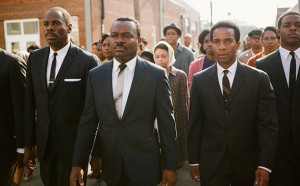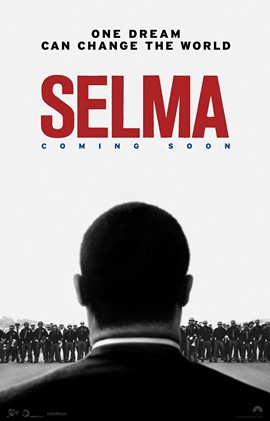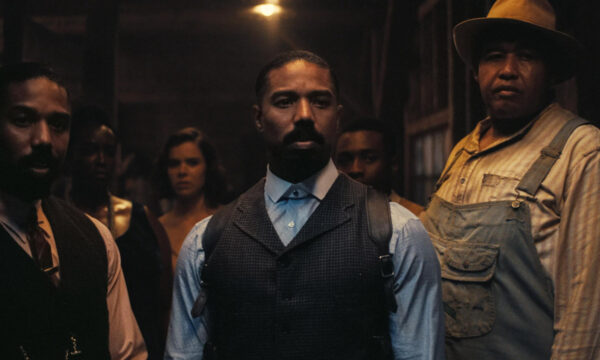Selma

America seems to be undergoing a curiously reflective period over the last year or so, certainly if cinema is anything to go by. Lincoln, 12 Years a Slave, The Butler and now Selma all depict the heroic struggle for emancipation on the part of African-American citizens.
Selma follows the story of Martin Luther King, singling out the eponymous Southern town as a place ripe for social unrest in the pursuit of attaining equal voting rights for black people. Those peacefully attempting to march from Selma to Montgomery – in the face of stern obfuscation from President Lyndon Johnson (excellently played by Tom Wilkinson) and bigoted opposition from the Governor of Alabama George Wallace – were repeatedly brutalised in an attempt to break their and Dr King’s resolve.
David Oyelowo’s performance of King is note-perfect; we see behind those exultant speeches to reveal a troubled man, wrestling with his own conscience in a lot of respects, but determined to continue with the noble burden that he felt had been divinely handed to him to carry forwards. Generally, the pacing of the film is well-achieved, with plenty of dramatic tension and moral preponderances to explore. Where the film is at its most effective is in the quieter, contemplative moments, usually between King and his wife Coretta, managing as it does to express the conflicting emotions writhing between them very convincingly.
Overall, though, parallels and modern extrapolations cannot help but be drawn, primarily because this is a political film that is clearly intended to draw a socio-political response. When King says that so long as there is a white man in the White House things will not change for the black man, the intense irony of Obama’s mediocre legacy is palpable. For while black Americans are still prosecuted and incarcerated on a vast scale, their stake in society is still low, and events such as Ferguson persist, it’s clear that America still has a long way to go.
Selma is a worthy if unremarkable film that shows the vital importance of grassroots collective action – although, with American democracy in such a consistently atrophied state, it is hard not to watch the film and see the legacy of the struggle for voting rights as little more than a fig-leaf for real and lasting change.
Michael John
Selma is released nationwide on 6th February 2015.
Watch the trailer for Selma here:


























Facebook
Twitter
Instagram
YouTube
RSS